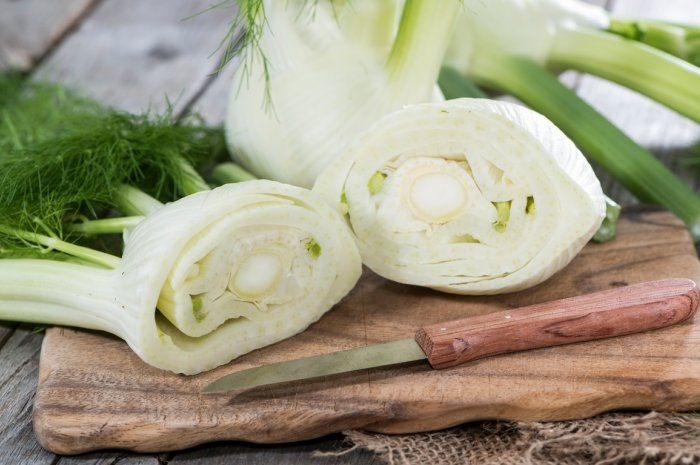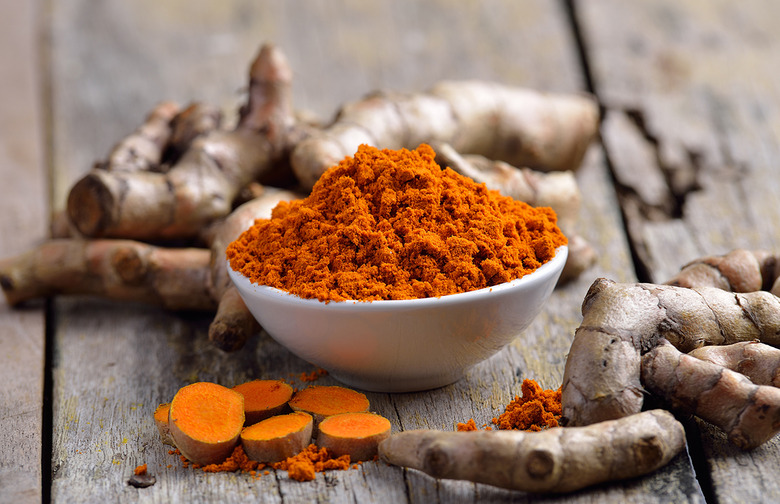12 Healthy, Everyday Foods To Stave Off Colds And Flu Slideshow
A tablespoon of apple cider vinegar is said to strengthen teeth, aid in digestion, and regulate blood sugar, but a shot of the almost-unbearably sour cider may also prevent cold and flu. Apple cider vinegar contains properties that break up mucus in the respiratory system, and taking one or two spoonful's before the onset of a cold may be enough to prevent it. Add some to salad dressings, or just chase a straight shot of it with a tablespoon of honey.
To read about the many health benefits of apple cider vinegar, click here.
Berries
Berries contain micronutrients called polyphenols, which research shows may have an antiviral effect. Cranberries, blueberries, and black currants have all been found to be effective weapons against flu.
Cabbage
Cabbage is an under-appreciated source of vitamin C, containing more than 50 percent of your recommended daily intake in just one cup. Specific cells in the immune system require an adequate supply of vitamin C to function properly. Vitamin C concentrations tend to decline exponentially during periods of infection, so it's important to get copious amounts in order to prevent, or recover from, a flu or cold.
Carrots
Carrots are rich in beta-carotene, the pigment that gives carrots their orange color. But beta-carotene isn't just for looks; it's also a potent antioxidant that the body converts into vitamin A, which is essential for building and maintaining a healthy and strong immune system. Specifically, it helps keep skin and mucous membranes in our nose, sinuses, and mouth healthy. Since these areas are the body's first line of defense, boosting your body's intake is essential for the season.
Chicken Soup
There is evidence supporting mom's insistence that a bowl of chicken noodle soup helps overcome a cold. A study conducted by the University of Nebraska found that the combination of vegetables and chicken within chicken soup effectively reduced upper respiratory cold symptoms.
Click here for five chicken soup recipes to fight off a cold.
Fennel
When consumed raw, fennel has an intense licorice flavor; when roasted, it takes on a caramel-like sweetness. One fennel bulb contains only 73 calories and almost no fat, but it's loaded with fiber, vitamin C, potassium, and a host of other minerals that help fortify the immune system. Fennel is a natural expectorant that clears the sinuses, and it could also potentially add years to your life.
Garlic
Using fresh garlic is a delectable way to flavor any savory dish, but the pungent cloves also contain allicin, the compound that gives garlic its signature scent when chopped of crushed. Allicin is an antioxidant that protects cells from free radical damage. Although evidence remains inconclusive, a short study found that people who took garlic extract reported lower incidences of colds compared to those who took a placebo.
Ginger
Ginger root adds a pungent and spicy pop to soups, stews, and stir-fried dishes, but ginger is also cited in The Encyclopedia of Medicinal Plants as a cure for nausea, a circulatory stimulant, and an antibacterial. Gingerol, a compound found in ginger, is especially useful for battling a cold because it alleviates congestion by reducing inflammation in the nasal passage. Try steeping some freshly grated ginger in hot water with some warm spices and honey. Ginger is one of the more reliable of the homeopathic cures as current research has confirmed its pathogen-inhibiting properties.
Greek Yogurt
The probiotics in Greek yogurt boost the number of healthy gut bacteria, which helps fortify the immune system and prevent harmful pathogens from reproducing, effectively reducing the risk of infection.
Oysters
Per gram, oysters have more zinc — an important mineral in combating the common cold — than any other food. A study tracking the incidences and severity of colds found that both were reduced within the test group taking zinc lozenges versus the control group taking a placebo. If oysters aren't your thing, pumpkin seeds are less expensive, vegetarian, and more widely available.
Sun-Dried Tomatoes
Tomatoes get their vibrant red color from the carotenoid lycopene, which reduces respiratory inflammation and prevents infection. Unlike regular tomatoes, which may be mealy and bland when out of season, sun-dried tomatoes are good year-round and contain the highest concentration of lycopene per gram of any food.
Sun-dried tomatoes don't just have to be a pasta or salad add-on; they are the star of this dip recipe.
Turmeric
The roots of turmeric, which is in same plant family as ginger, have been used medicinally for centuries, but only recently has modern medicine started to appreciate the spice's benefits, with more than 3,000 academic publications referencing the herb within the last 25 years. Studies have shown turmeric oil to be especially effective against certain variations of the parainfluenza virus and other disorders of the respiratory tract. Sprinkle some on to your morning oatmeal or add a teaspoon to a breakfast smoothie.



